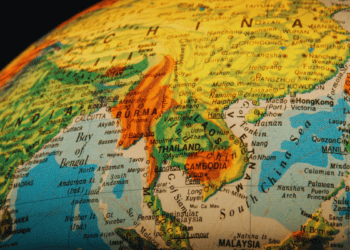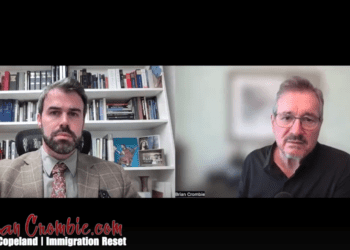This article originally appeared in the National Post.
By David Mulroney and Obianuju Ekeocha, May 2, 2024
Canada’s once enviable image as a prosperous, capable middle power is eroding. This matters because image shapes influence, and influence enables vulnerable middle powers to thrive and survive in an increasingly turbulent world.
This image problem can’t be blamed on foreign misinformation. The damage is self-inflicted — Prime Minister Justin Trudeau regularly enumerates Canada’s alleged misdeeds, which, in his telling, include genocide.
Nor is our nation trying hard to win friends. Canada once shouldered more than its share of the global security burden. Now Ottawa seems unperturbed as the country’s proud but woefully underfunded Armed Forces steadily morph into stay-at-home emergency responders. It is no surprise that Canada is not included as new alliances are forged.
Canadian politicians are also quick to reject allies who propose investing in the country’s energy sector. Canadian diplomats helped shape the global trading system, but now Canada struggles to conclude even a modest free trade agreement.
Image-conscious Canadians used to believe that their biggest challenge was being considered predictable, even boring. Even Canada’s social policies are changing that. Foreign observers are disturbed by the rise of medically assisted deaths in this country and the possibility that vulnerable Canadians, unable to access care, are being coerced to accept state-delivered death.
Far from boring, Canada is now seen as a constant example of what not to do.
Ottawa has also abandoned a quintessentially Canadian inclination that once underpinned its diplomacy; Canadians were world-class listeners. Canada’s capacity to listen once enabled diplomats to show up at the tables that mattered with ideas that mattered.
Now Canadians show up to lecture, not listen. This stunning self-confidence was evident in the government’s assertion, early in its mandate, that Canadian foreign policy, and its generous aid program, would be informed by feminism (as understood by progressive Canadians). But for a middle power like Canada, foreign policy should be responsive, based on an appraisal of global challenges and opportunities.
There’s no denying that empowering women and girls is a worthy objective but in a dangerous world the promotion of feminism simply cannot be the principal objective of foreign policy. Noting major international challenges — including an aggressive China, wars in Ukraine and the Middle East, and threats to global public health — it’s clear that, before attempting anything else, Canada’s foreign policy must focus on protecting national security and advancing the well-being of Canadians.
Getting that right will enable Canada to remain a generous global citizen but for any such generosity to be fruitful it must include sincere consultation with recipient countries.
Respectful consultation should characterize Canada’s large aid program in Africa. People in most African countries profess respect for the sanctity of life and the primacy of the family, something confirmed by opinion polls, public commentary and legislation. Yet the lion’s share of Canada’s global funding for “sexual and reproductive health and rights,” some $700 million per year, is spent persuading people across Africa to accept abortion.
This should make Canadians uneasy. Central to criticism of Canada’s Residential Schools system was the allegation that Ottawa used its power to undermine Indigenous cultures it judged to be backward. A similar spirit of cultural imperialism is underneath Canada’s Feminist International Assistance Policy in Africa.
Canadian diplomats are now seen as progressivism’s zealous champions, promoting a dollar-driven, coercive “diplomacy” that targets politicians, media and education systems. Far from winning friends in Africa, Ottawa’s aid program is seen as hostile and subversive — 21st-century ideological colonialism.
Much of Canada’s financial assistance does not go directly to African partners but goes to multilateral organizations, NGOs and abortion providers in the U.S. and U.K.
Hardly a foreign policy success.
Much of the frustration in African countries stems from Canada’s failure to respect the fundamentals of constructive development assistance, notably the importance of enabling recipient countries to quickly achieve self-sufficiency. Ottawa is in no hurry. Canada’s remake of African cultures is an open-ended project, providing Canadian aid workers and their foreign partners a long run in their self-appointed role as saviours.
Authentic African voices aren’t consulted. Canadian officials aren’t interested in hearing that what Africans really want is a reduction in trade barriers and help getting their goods to world markets. Nor is Ottawa inclined to offer Africa’s young people education that focuses on technology rather than progressive ideology.
Canada’s feminist foreign policy is disconnected from reality. It’s not attuned to urgent grassroots issues that don’t fit a pre-conceived feminist problem set. We don’t, for example, hear much from Ottawa about the deplorable rise in the kidnapping, rape and forced conversion of girls in Africa, the Middle East and South Asia.
Ottawa just isn’t listening.
David Mulroney was Canada’s ambassador to China from 2009-2012 and is a member of the advisory council at the Macdonald-Laurier Institute.
Obianuju Ekeocha is a U.K.-based Nigerian biomedical scientist and the author of Target Africa: Ideological Neocolonialism in the Twenty-First Century.






